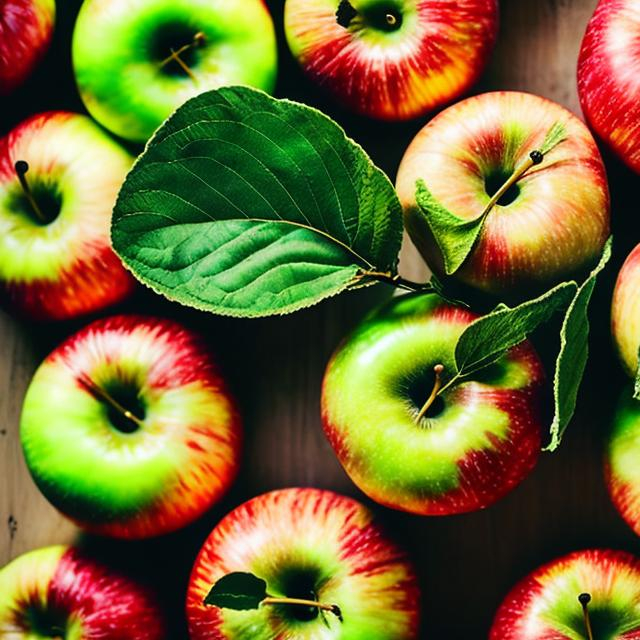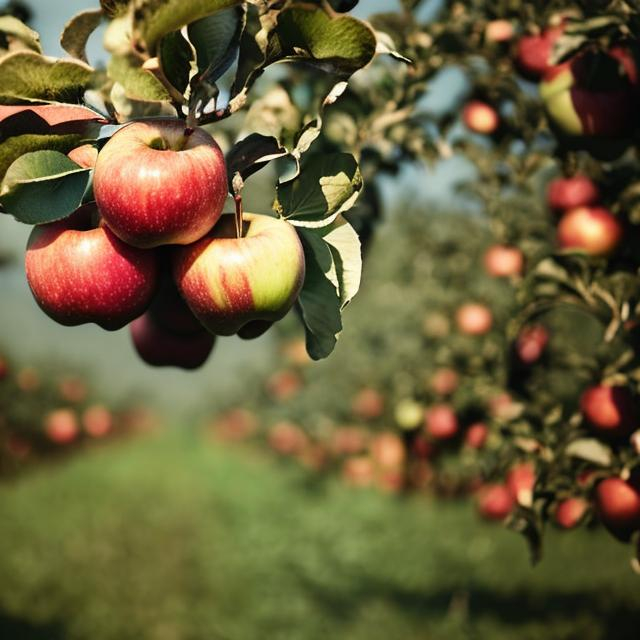Organic Apple
Decolorized apple concentrate presents itself as a viable alternative to traditional sugar and other liquid sweeteners. Characterized by its lack of color and discernible flavor, this concentrate possesses the versatility to impart sweetness to a diverse array of products, spanning from juice beverages and alcoholic drinks to yogurts and ice creams.
The available variations of apple concentrate extend across a spectrum of acidity levels, ranging from low acidity variants that are notably sweet and often employed as both a flavor enhancer and sweetening agent, to medium and high acidity iterations. Our product offerings encompass this spectrum, allowing us to accommodate the specific acidity requirements of individual customers, tailoring our solutions to meet their distinct product specifications and preferences.
The utility of apple concentrate transcends its role as a mere sweetening agent; it finds application in diverse sectors, including fruit juice blends, ciders, and as a sweetener in jams. This versatility positions decolorized apple concentrate as a multifaceted ingredient, contributing to the enhancement of various food and beverage products
«Scientific Validation of Organic Apple Superiority: A Multidimensional Perspective»
Scientific evidence underscores the superiority of organic apples across multiple dimensions. Rigorous studies consistently affirm their reduced pesticide residues, elevated concentrations of essential nutrients, and positive impact on soil quality through sustainable farming practices such as composting and crop rotation. The embrace of organic cultivation actively contributes to biodiversity preservation, with documented correlations between organic farming methods and increased plant and animal diversity.
Furthermore, the absence of genetically modified organisms (GMOs) in organic apples aligns with the preferences of consumers seeking natural, unmodified food sources. The reduction in chemical fertilizer usage is grounded in scientific approaches, minimizing environmental implications associated with conventional agriculture.


«Eco-Friendly Excellence: Organic Apple Production and Scientific Environmental Stewardship»
Sustainability is a key tenet of organic apple production, as reflected in practices that decrease the overall ecological footprint of farming. Peer-reviewed research consistently supports the ecological benefits of organic farming methods, affirming the environmental stewardship inherent in the cultivation of organic apples.
While the scientific landscape is dynamic, the cumulative evidence accentuates the holistic advantages of organic apples, positioning them as a scientifically endorsed choice for health-conscious consumers and environmentally aware experts.
Organic apples are accessible through Metaex24 in the following varieties:
Decolorized apple concentrate, offered in various forms such as Dices IQF, Juice concentrate (decolorized, high acidity, low acidity, and medium acidity), Puree (concentrated 36-38 brix, single strength, and creamy puree), as well as Powdered, boasts an extensive range of applications.
Dices IQF:
- Ideal for inclusion in fruit salads, bakery products, and culinary creations requiring distinct apple pieces with preserved integrity.
Juice Concentrate Decolorized:
- Suitable for enhancing the sweetness of a broad spectrum of beverages, including clear juices, smoothies, and cocktail mixes, without altering their visual appeal.
Juice Concentrate High Acidity:
- Excellently suited for the production of cider, apple-flavored seltzers, and other beverages where a more pronounced acidity is desired.
Juice Concentrate Low Acidity:
- A versatile option for sweetening applications, including jams, confectioneries, and dessert items, without introducing an overpowering tartness.
Juice Concentrate Medium Acidity:
- Strikes a balance between sweetness and acidity, making it adaptable for use in fruit juice blends, flavored yogurts, and frozen desserts.
Puree Concentrated 36-38 brix:
- Valuable for applications where a concentrated apple flavor is essential, such as in pie fillings, sauces, and compotes.
Puree Single Strength:
- Perfect for manufacturing fruit-based beverages, smoothies, and baby food, providing a wholesome and natural apple taste.
Creamy Puree:
- Adds a velvety texture to desserts, ice creams, and yogurts, enhancing the overall sensory experience.
Powdered:
- Offers convenience in incorporating apple flavor into dry mixes, instant beverages, and baking mixes, ensuring a consistent and easily dispersible product.
By providing this array of forms, our decolorized apple concentrate addresses the diverse needs of the food and beverage industry, offering solutions that cater to a wide range of culinary and manufacturing applications.
«Global Landscape of Organic Apple Cultivation: Key Players and Sustainable Practices»
Organic apples are grown in various countries around the world, as organic farming practices have gained popularity in response to consumer demand for healthier and more environmentally sustainable food options. Some of the countries known for significant organic apple cultivation include:
United States: Particularly in states like Washington and Oregon, which are major apple-producing regions.
Germany: Known for a robust organic farming sector, including organic apple orchards.
Italy: A significant producer of organic apples, especially in regions like South Tyrol.
France: Various regions, including Provence-Alpes-Côte d’Azur and Rhône-Alpes, are involved in organic apple cultivation.
New Zealand: Known for its organic apple orchards, catering to both domestic and international markets.
Argentina: Emerging as a notable player in the organic apple market.
Canada: Particularly in provinces like British Columbia and Quebec.
Austria: Has a growing organic agriculture sector, including apple cultivation.
Switzerland: Organic apple production is part of the broader organic farming movement.
South Africa: Some regions are involved in organic apple cultivation for both local consumption and export.
These countries represent just a portion of the global organic apple production landscape, as organic agriculture continues to expand in response to increasing consumer awareness of sustainability and environmental concerns.
Trading Sizes and Quantities Information for Organic Apples on Metaex24
Dear Trading Experts,
In the context of trading organic apples on the commodity exchange Metaex24, the following information regarding trading sizes and quantities is pertinent:
Packaging Units:
- Organic apples are typically offered in standard crates or boxes. Common sizes may include 18 kg, 20 kg, or 22 kg per packaging unit.
Weight Specifications:
- Trading in organic apples is conducted in weight units, with both kilograms (kg) and pounds (lbs) being relevant. Quantities may be expressed in larger units such as tons.
Container Piece Counts:
- For international trade, organic apples are often transported in containers. The quantity is calculated based on the container size (usually 20 feet or 40 feet), accommodating the number of crates or boxes that fit into the container.
Quality Standards:
- Please note that trading organic apples on Metaex24 adheres to quality standards. These encompass sizes, colors, ripeness levels, and other quality attributes in accordance with international agreements and Metaex24 guidelines.
The information provided here is intended to assist experts on Metaex24 and provide a clear overview of the relevant trading sizes and quantities for organic apples. For precise and up-to-date details, we recommend consulting the trading guidelines and standards on Metaex24.
